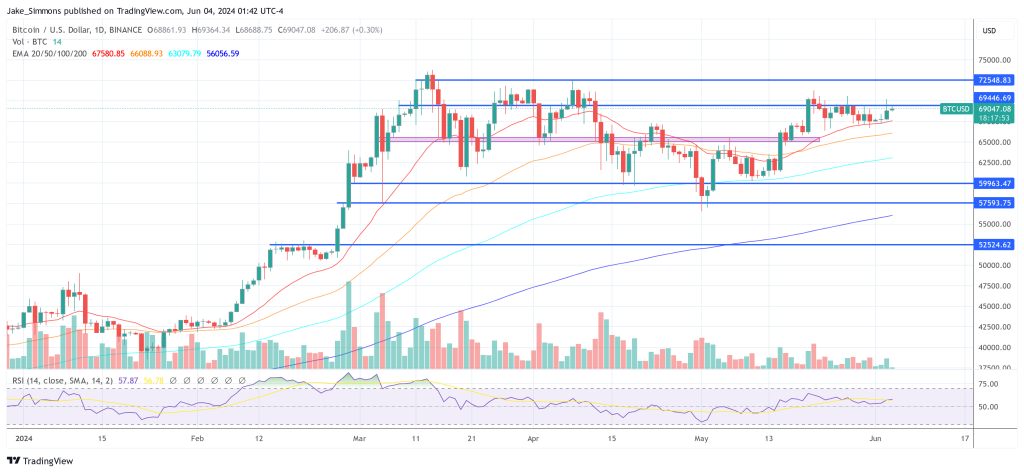On Monday, NSA whistleblower Edward Snowden once again expressed his support for Bitcoin (BTC). Snowden’s statement came in the wake of a significant market disruption that saw Berkshire Hathaway shares plummet by 99% due to a technical glitch on the New York Stock Exchange (NYSE). This incident has reignited discussions about the robustness and reliability of traditional financial systems versus decentralized alternatives.
Bitcoin Fixes This
A technical glitch on the NYSE triggered extreme price swings in several securities, causing a temporary suspension of trading. Approximately two hours after the NYSE halted trading, it was reported that all systems were operational again.
Among the affected securities, shares of Berkshire Hathaway, Warren Buffett‘s storied investment company, and Barrick Gold, a major mining group, experienced dramatic and erroneous declines of around 99% in value. Berkshire Hathaway shares, which typically trade at more than $622,000, dropped precipitously to just $185 due to the glitch. This erroneous pricing was later corrected.
The NYSE attributed the turmoil to “technical difficulties” with the limit-up/limit-down mechanisms. These mechanisms are designed to curb unusually large price fluctuations during trading sessions. Introduced after the 2010 flash crash, where a selling wave triggered by computer algorithms wiped out a trillion dollars in market value within minutes, these mechanisms are critical in maintaining market stability. Intercontinental Exchange, the NYSE’s operator, reported no indications of a hacker attack.
In response to this event, Edward Snowden took to X, simply stating, “Bitcoin fixes this.” Snowden’s terse comment underscores his belief in the advantages of decentralized financial systems over traditional, centralized exchanges.
bitcoin fixes this https://t.co/1iS96wdbMT
— Edward Snowden (@Snowden) June 3, 2024
Bitcoin, as a decentralized digital currency, operates on a peer-to-peer network without a central authority. This structure contrasts sharply with traditional stock exchanges, where centralized control can lead to systemic risks, such as those demonstrated by the recent NYSE glitch. The design of Bitcoin aims to ensure transparency, immutability, and security, reducing the potential for such catastrophic failures due to technical issues or centralized errors.
Snowden’s endorsement of Bitcoin in this context highlights the cryptocurrency’s resilience against the vulnerabilities that can plague traditional financial systems. By pointing out that “Bitcoin fixes this,” Snowden implies that BTC’s decentralized nature could potentially prevent similar disruptions in the financial system, offering a more reliable alternative to traditional trading platforms.
Notably, Bitcoin boasts an uptime of 99.989% since its inception. This remarkable level of reliability is a testament to the robustness of its underlying blockchain technology. There have been only two incidents in BTC’s early days: the first in 2010, known as the “value overflow incident,” where a bug created billions of BTC out of thin air, and the second in 2013, involving a temporary blockchain fork caused by an incompatible software upgrade. Both incidents were swiftly addressed by the core developers, reinforcing Bitcoin’s resilience.
At press time, BTC traded at $69,047.










